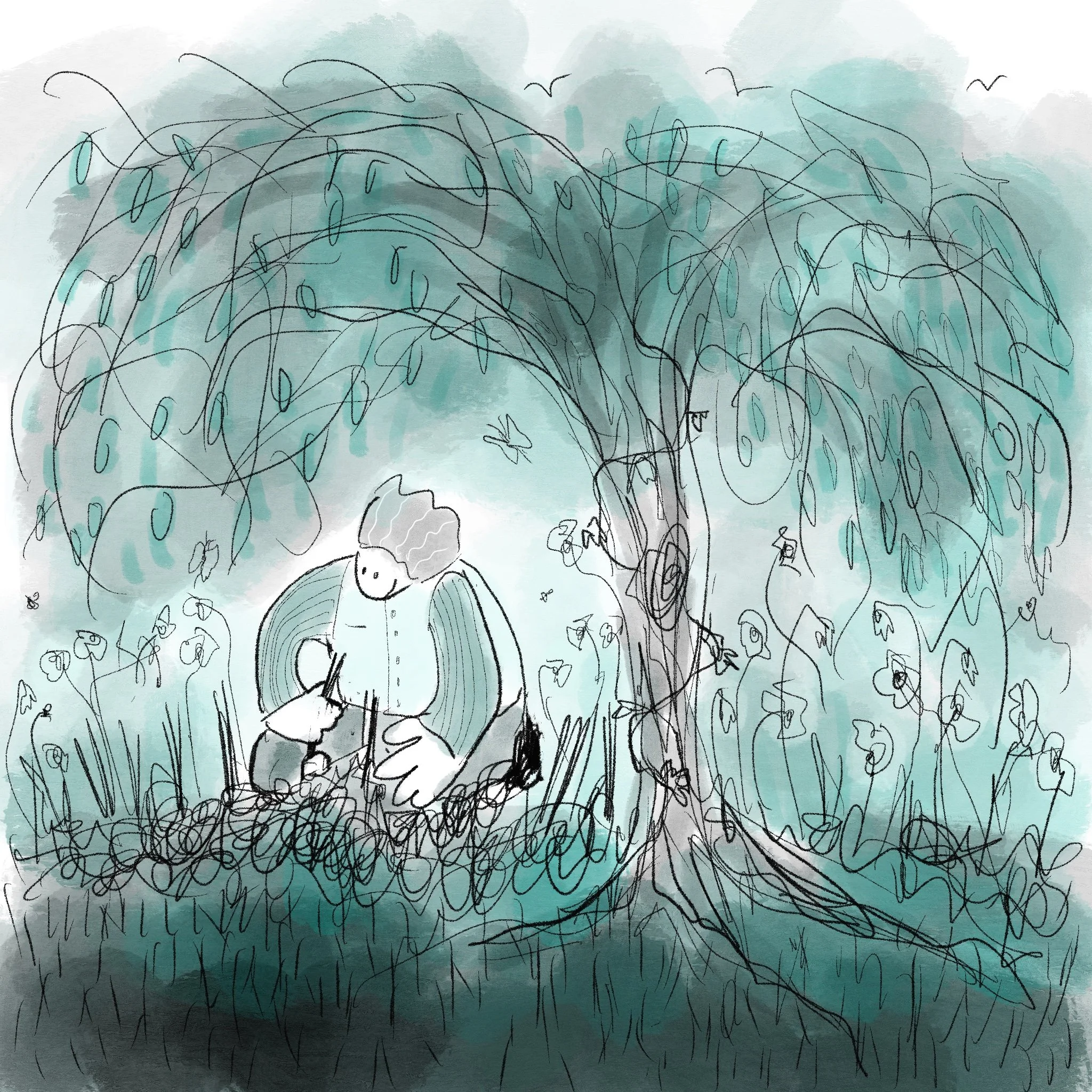Courage to be vulnerable
Courageous Insights from Dr. Nzinga Harrison
Every week, I ask my Brave New Girls podcast guests how they define courage. My guest this week is Dr. Nzinga Harrison, author of Un-Addiction, psychiatrist, activist, and founder of Eleanor Health. This is how she defines courage:
"The first step is recognizing we have a problem. I really define courage as the vulnerability, like being able to be vulnerable enough to say, one, I'm afraid of whatever this is the way it is. And two, I need help to change that because I don't think any change happens individually. No change. Somebody said to me, nothing great that ever happened was done by only one person, right? No change happens individually. And so the first is I'm afraid of whatever this is, and whatever this is causing and whatever this is doing. And I have the courage to ask for help changing it."
Dr. Nzinga’s definition of courage isn’t about fearlessness or taking bold, unflinching action. Instead, she emphasizes vulnerability and the importance of acknowledging our fears and limitations. It takes immense courage to admit when something is wrong, especially when that “something” is affecting our mental health, relationships, or sense of self. This form of courage is about facing the discomfort, fear, and shame that often accompanies recognizing our struggles.
We all have moments when we realize that something in our lives isn’t working. It could be an unhealthy habit, a toxic relationship, or an internal battle with anxiety or depression. Dr. Nzinga's message is clear: real courage begins with vulnerability—the willingness to admit that we are scared and in need of help.
Using This Courage in Daily Life
So how can we apply Dr. Nzinga’s definition of courage to our own lives? Below are ten actionable steps to embrace vulnerability, acknowledge problems, and ask for help, just as Dr. Nzinga suggests.
If you’d like support creating a healthier, happier, impactful life, go to our coaching services HERE
Dare to do things differently, for a happier, healthier, impactful life.
Here are ten actionable steps based on Dr Nzinga's philosophy:
1. Acknowledge Your Fears: Take time to reflect on the areas of your life where you feel discomfort, anxiety, or fear. Courage starts with identifying these feelings rather than suppressing them.
Practice Self-Awareness: Be mindful of the situations that cause you stress or make you feel inadequate. Understanding your triggers allows you to tackle them with a more informed perspective.
Let Go of Perfectionism: Courage is not about having it all figured out. Accept that you don’t need to be perfect to start making changes in your life. Perfectionism often holds us back from asking for help.
Reach Out to Others: As Dr. Harrison says, “No change happens individually.” It’s important to ask for support, whether from friends, family, or professionals. Vulnerability doesn’t mean weakness—it means you're strong enough to accept help.
Recognize That You’re Not Alone: Knowing that everyone experiences fear and struggle at some point can help lessen the stigma around vulnerability. Lean on community and shared experiences.
Set Small, Manageable Goals: Change doesn’t happen all at once. Break your larger goals down into smaller, actionable steps. Each small success builds momentum for bigger changes.
Cultivate Self-Compassion: Be kind to yourself as you embark on making changes. Courage includes forgiving yourself when things don’t go as planned and continuing to move forward.
Celebrate Progress, Not Perfection: Acknowledge even the smallest steps of progress. Every effort you make to address a problem is a victory worth celebrating.
Seek Professional Guidance: Whether you're dealing with mental health challenges, addiction, or relationship issues, professional guidance can be invaluable. Therapists, counselors, and support groups provide the tools and encouragement needed to navigate change.
Embrace Vulnerability as Strength: It takes immense strength to be vulnerable and ask for help. Each time you admit your fears or struggles, you strengthen your ability to grow, heal, and thrive.
Dr. Nzinga Harrison teaches us that true courage lies in vulnerability, recognizing our fears, and asking for help to bring about meaningful change.
PS. As your Wellbeing Coach, I give you the tools to heal, grow & create the life you want.
If you’d like support in growing your inner Brave New Girl for a healthier, happier, impactful life, book in for a free chat and we can take it from there: BOOK A CHAT
PPS Join our one-day Brave New Girls Wellbeing Retreat to reset from our crazy lives HERE



